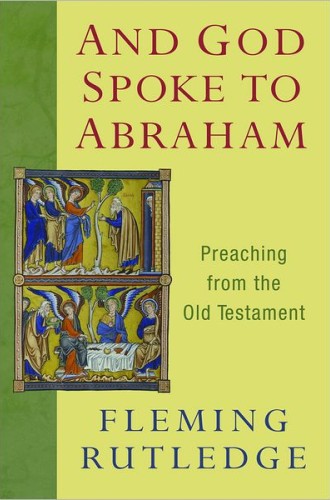And God Spoke to Abraham, by Fleming Rutledge
Fleming Rutledge is the most interesting preacher today working the fault line between the mainline churches and evangelicalism. Throughout this remarkable collection of Old Testament sermons she calls for mainliners and evangelicals to realize their common identity in Christ for the sake of our mutual mission in the world. She chides both, loves both, belongs to both—and offers semieschatological predictions like this: “If the mainliners can get over their distaste for the evangelicals, we are going to see something happen in American Christianity that we haven’t seen for a long time.”
Rutledge has plenty of grief to pour out both on her fellow mainliners, as we yawn in the presence of a holy God while our churches hunger for the word of the Lord, and on evangelicals, who fetishize the flag and rally to American bravado rather than biblical humility. But she judges so as to offer grace. If our divisions are a theological mistake, cannot God bring about their remedy?
An associate rector at Grace Episcopal Church in New York City for many years, Rutledge now practices what she calls an itinerant ministry of preaching. This gives her a broad vantage point from which to view what happens in the nation’s mainline churches. There was a day, she says, when Episcopalians didn’t preach Jesus overmuch. But now all they do is preach Jesus—without attention to the Old Testament matrix in which he was nurtured and without which we cannot understand him. She detects “a noticeable slippage” in the knowledge and use of the Old Testament in our churches. And not coincidentally, we have lost a sense of “a living God.” There are exceptions: African-American churches and evangelical churches speak as though God is still living and active and may turn up and demand something of us.





